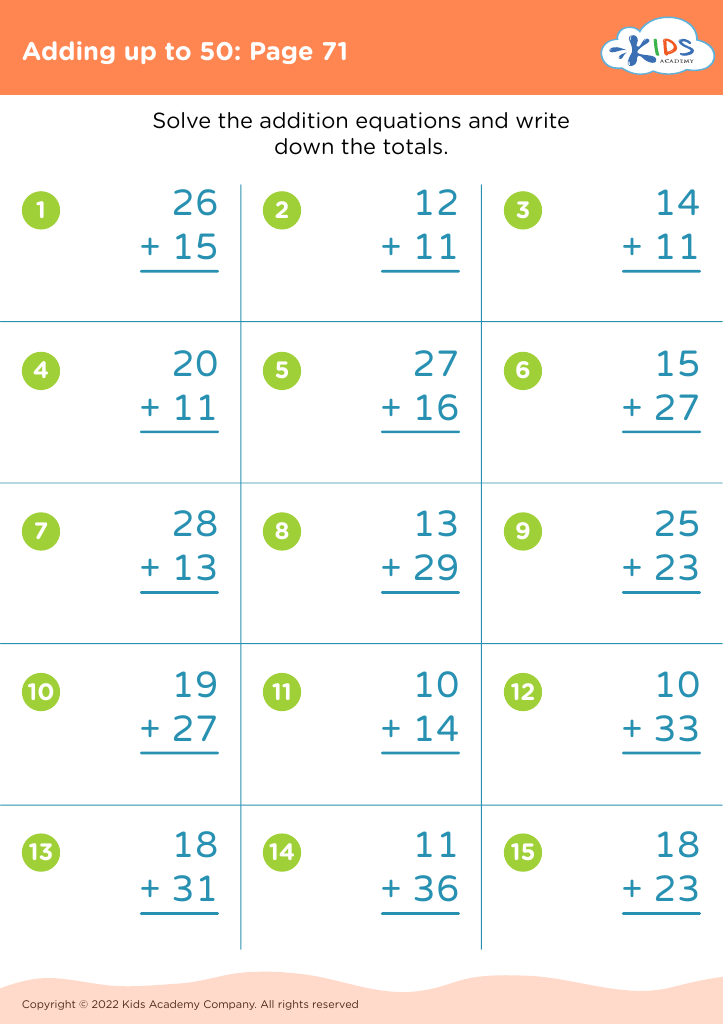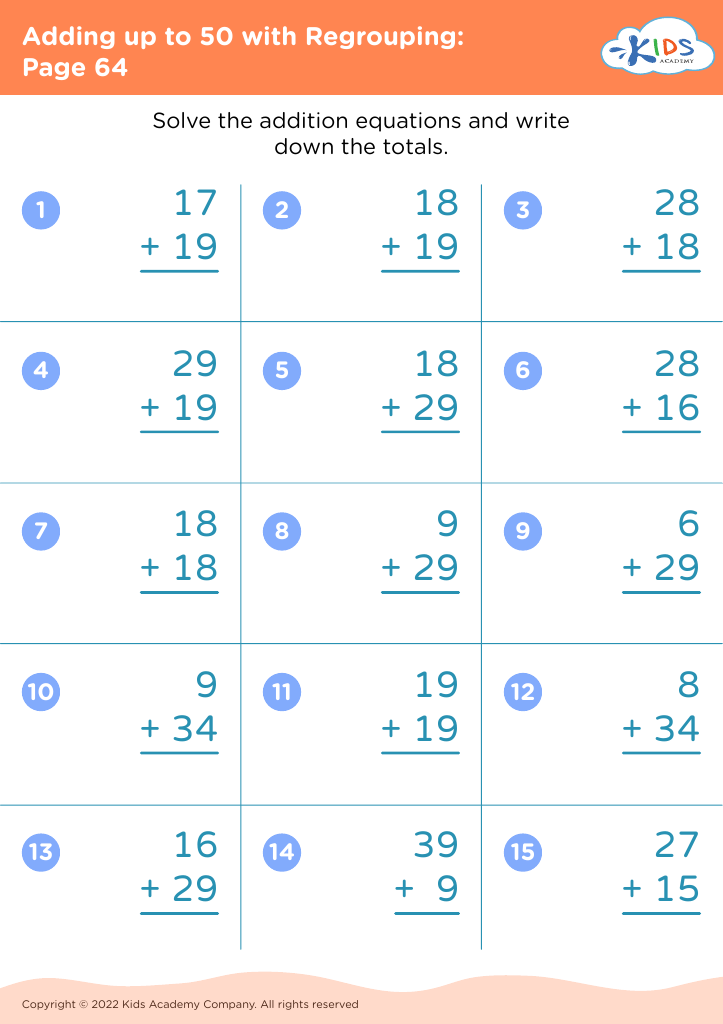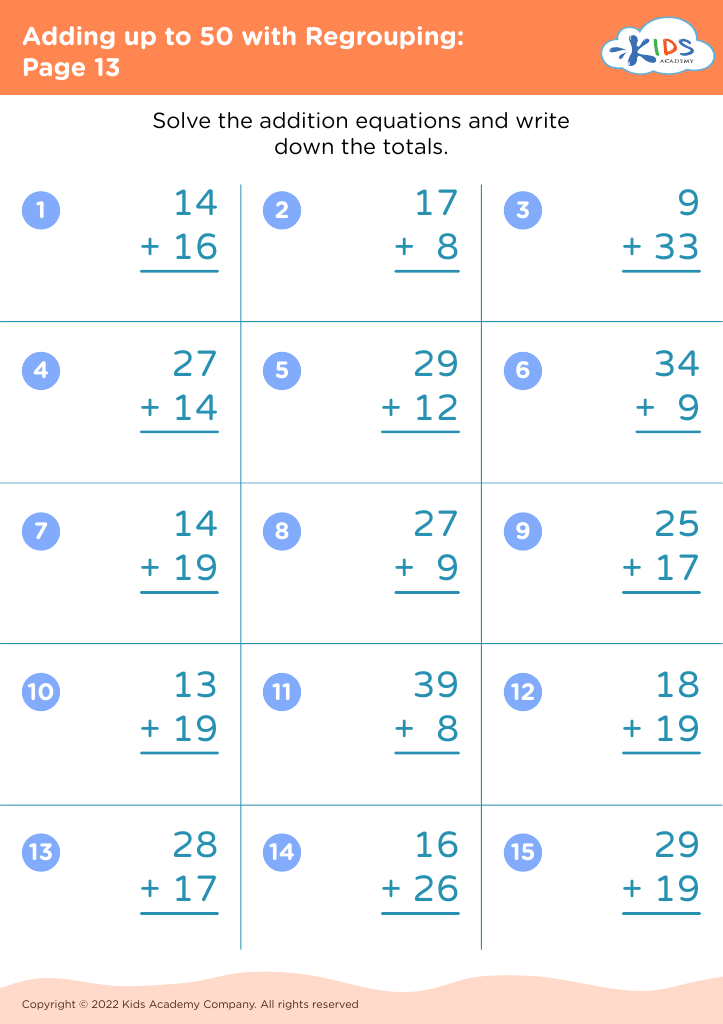Cognitive Development Adding up to 50 Worksheets for Ages 3-7
4 filtered results
-
From - To
Boost your child’s cognitive development with our "Adding Up to 50 Worksheets," specially designed for ages 3-7! These engaging worksheets promote essential math skills, helping young learners master addition up to 50. Through fun activities, children enhance their problem-solving abilities, improve memory retention, and develop critical thinking skills. Perfect for both classroom use and at-home learning, our worksheets offer a variety of exercises that cater to different learning styles. Let's make math enjoyable while laying a solid foundation for future success. Start your child’s journey towards mathematical confidence today with our thoughtfully crafted resources that support cognitive development!
Cognitive development is a crucial aspect of a child's growth, particularly from ages 3 to 7, when their brains are rapidly developing. Parents and teachers should care about cognitive development, especially skills like counting and basic arithmetic, for several reasons.
First, strong cognitive abilities provide the foundation for academic success. Mastering concepts like 'adding up to 50' encourages early numeracy, enhancing problem-solving and critical thinking skills. These foundational skills support later learning in mathematics and other subjects.
Second, understanding counting and basic arithmetic contributes to a child's self-confidence. When children grasp these concepts, they experience a sense of achievement, which fosters a positive attitude towards learning. This early confidence can lead to a lifelong love for education.
Moreover, engaging in activities that promote cognitive skills helps in social development. Collaborative counting games encourage teamwork and communication, essential skills for classroom and life interactions.
Finally, cognitive development can aid emotional regulation. Understanding numerical relationships offers children a way to categorize and make sense of the world around them, helping them feel more secure and grounded.
In summary, nurturing cognitive development in young children equips them with critical life skills that will benefit them academically, socially, and emotionally.
















